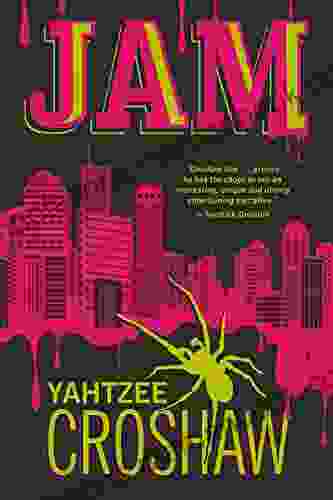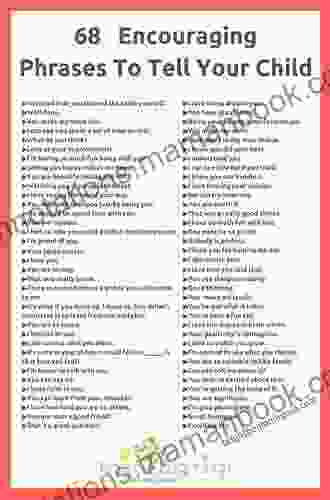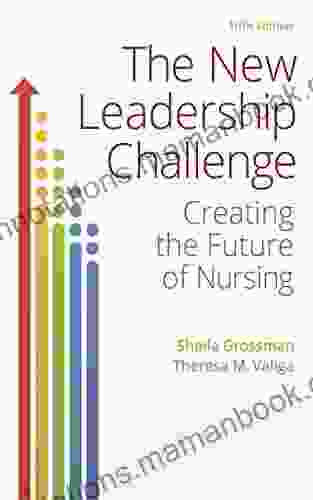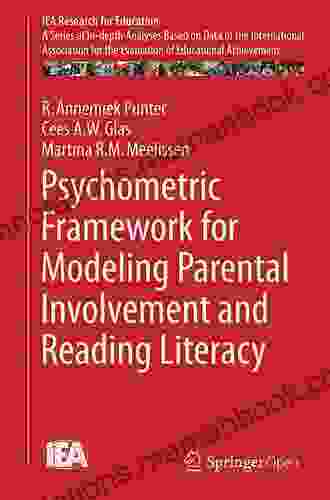Psychometric Framework for Modeling Parental Involvement and Reading Literacy: A Comprehensive Analysis

4.3 out of 5
| Language | : | English |
| File size | : | 2938 KB |
| Text-to-Speech | : | Enabled |
| Screen Reader | : | Supported |
| Enhanced typesetting | : | Enabled |
| Print length | : | 129 pages |
Parental involvement is widely recognized as a crucial factor in children's academic success, particularly in the development of reading literacy. Researchers have developed various psychometric frameworks to model parental involvement and its impact on reading literacy, providing valuable insights into the complex relationship between these variables. This article aims to provide a comprehensive analysis of the psychometric framework for modeling parental involvement and reading literacy, exploring its key concepts, dimensions, measurement, and impact on children's reading literacy development.
Key Concepts and Dimensions of Parental Involvement
The psychometric framework for modeling parental involvement encompasses several key concepts and dimensions, including:
- Definition: Parental involvement refers to the active participation of parents in their children's education, both at home and at school.
- Dimensions: Parental involvement can be categorized into three primary dimensions:
- Parenting practices: This dimension includes activities such as reading to children, helping with homework, and providing emotional support.
- School involvement: This dimension involves parents' active participation in school activities, such as attending parent-teacher conferences, volunteering, and supporting school events.
- Home environment: This dimension encompasses the physical and emotional environment within which children learn, including the availability of books, educational resources, and a supportive family atmosphere.
Measurement of Parental Involvement
Researchers have developed various instruments to measure parental involvement, including questionnaires, interviews, and observational methods. These instruments typically assess the frequency and quality of parents' involvement in the three dimensions mentioned above. Some commonly used measures include:
- Parent Involvement Inventory (PII): This questionnaire measures parents' involvement in parenting practices, school involvement, and home environment.
- Home and School Environment Inventory (HESI): This interview-based measure assesses the home environment and parents' involvement in their children's education.
- Observational Measures: Researchers may also use observational methods to directly observe parents' interactions with their children, both at home and at school.
Impact of Parental Involvement on Reading Literacy
Research has consistently demonstrated a positive correlation between parental involvement and children's reading literacy development. Studies have shown that children with highly involved parents tend to have higher reading comprehension, fluency, and vocabulary skills. The impact of parental involvement on reading literacy can be attributed to several factors:
- Early exposure to language: Involved parents provide their children with early and frequent exposure to language, which fosters language development and literacy skills.
- Cognitive stimulation: Parenting practices such as reading to children and engaging in conversations provide cognitive stimulation that promotes children's thinking and problem-solving abilities.
- Motivational support: Involved parents provide emotional support and encouragement, which motivates children to engage in reading activities.
- Access to resources: Involved parents ensure that their children have access to books, educational materials, and a supportive home environment, which facilitates reading literacy development.
Challenges and Limitations
Despite the strong evidence supporting the positive impact of parental involvement on reading literacy, there are some challenges and limitations to consider:
- Measurement challenges: Measuring parental involvement accurately can be challenging due to the subjective nature of the concept and the difficulty in observing all aspects of involvement.
- Cultural and socioeconomic factors: The relationship between parental involvement and reading literacy can be influenced by cultural and socioeconomic factors, such as parents' educational level, income, and cultural beliefs about parenting.
- Time constraints: Parents may face time constraints that limit their ability to fully engage in parental involvement activities.
The psychometric framework for modeling parental involvement and reading literacy provides a valuable tool for researchers and practitioners to understand the complex relationship between these variables. By assessing the key dimensions of parental involvement and its impact on children's reading literacy development, researchers can inform educational policies and interventions aimed at promoting parental involvement and improving reading literacy outcomes. Future research should continue to explore the nuances of parental involvement, particularly in diverse cultural and socioeconomic contexts, to further enhance our understanding of its role in children's academic success.
References
- Epstein, J. L. (2011). School, family, and community partnerships: Preparing educators and improving schools (3rd ed.). Westview Press.
- Hoover-Dempsey, K. V., Battiato, A. C., Walker, J. M., Reed, R. P., DeJong, R., & Jones, K. P. (2005). Parental involvement in homework: A review of current research and future directions for study. Educational Psychologist, 40(1),3-13.
- Jeynes, W. H. (2005). A meta-analysis of the relation of parental involvement to urban elementary school student academic achievement. Urban Education, 40(3),237-269.
- Melhuish, E. C., & Belsky, J. (2018). The contribution of home and family environments to children's reading development. Journal of Child Psychology and Psychiatry, 59(10),1118-1128.
- National Education Association. (2018). Parental involvement: A review of the research. Retrieved from https://www.nea.org/professional-excellence/student-engagement/tools-and-tips/parental-involvement-review-research
4.3 out of 5
| Language | : | English |
| File size | : | 2938 KB |
| Text-to-Speech | : | Enabled |
| Screen Reader | : | Supported |
| Enhanced typesetting | : | Enabled |
| Print length | : | 129 pages |
Do you want to contribute by writing guest posts on this blog?
Please contact us and send us a resume of previous articles that you have written.
 Top Book
Top Book Novel
Novel Fiction
Fiction Nonfiction
Nonfiction Literature
Literature Paperback
Paperback Hardcover
Hardcover E-book
E-book Audiobook
Audiobook Bestseller
Bestseller Classic
Classic Mystery
Mystery Thriller
Thriller Romance
Romance Fantasy
Fantasy Science Fiction
Science Fiction Biography
Biography Memoir
Memoir Autobiography
Autobiography Poetry
Poetry Drama
Drama Historical Fiction
Historical Fiction Self-help
Self-help Young Adult
Young Adult Childrens Books
Childrens Books Graphic Novel
Graphic Novel Anthology
Anthology Series
Series Encyclopedia
Encyclopedia Reference
Reference Guidebook
Guidebook Textbook
Textbook Workbook
Workbook Journal
Journal Diary
Diary Manuscript
Manuscript Folio
Folio Pulp Fiction
Pulp Fiction Short Stories
Short Stories Fairy Tales
Fairy Tales Fables
Fables Mythology
Mythology Philosophy
Philosophy Religion
Religion Spirituality
Spirituality Essays
Essays Critique
Critique Commentary
Commentary Glossary
Glossary Bibliography
Bibliography Index
Index Table of Contents
Table of Contents Preface
Preface Introduction
Introduction Foreword
Foreword Afterword
Afterword Appendices
Appendices Annotations
Annotations Footnotes
Footnotes Epilogue
Epilogue Prologue
Prologue Norman L Crockett
Norman L Crockett Nathalie Vierne
Nathalie Vierne Barbara Binland
Barbara Binland P Z Johns
P Z Johns Kelsey Timmerman
Kelsey Timmerman Stacy Willingham
Stacy Willingham Roger Mcnamee
Roger Mcnamee Olivia Rana
Olivia Rana Ellen Berry
Ellen Berry Wendy Bernard
Wendy Bernard Brodi Ashton
Brodi Ashton Nick Cook
Nick Cook Adrian Edward
Adrian Edward D M Smith
D M Smith Lemmy Gorak
Lemmy Gorak Jenna Dayle
Jenna Dayle Trisha Maynard
Trisha Maynard Parvinder Mehta
Parvinder Mehta Harold Stewart
Harold Stewart Chris Mcgreal
Chris Mcgreal
Light bulbAdvertise smarter! Our strategic ad space ensures maximum exposure. Reserve your spot today!

 Jace MitchellCoffee Production and Struggles for Autonomy in Chiapas: Diverse Economies...
Jace MitchellCoffee Production and Struggles for Autonomy in Chiapas: Diverse Economies... Emmett MitchellFollow ·9.5k
Emmett MitchellFollow ·9.5k Kyle PowellFollow ·14k
Kyle PowellFollow ·14k Francis TurnerFollow ·7.1k
Francis TurnerFollow ·7.1k Stan WardFollow ·6.8k
Stan WardFollow ·6.8k Ian MitchellFollow ·8.7k
Ian MitchellFollow ·8.7k Thomas HardyFollow ·9.5k
Thomas HardyFollow ·9.5k Dylan MitchellFollow ·5.9k
Dylan MitchellFollow ·5.9k Alex ReedFollow ·16.6k
Alex ReedFollow ·16.6k

 Nick Turner
Nick TurnerBeethoven's Early Chamber Music: A Listening Guide
Ludwig van Beethoven's early...

 Clarence Mitchell
Clarence MitchellJam Yahtzee Croshaw: The Enigma Behind the Beloved Board...
In the realm of board games, where dice roll...

 F. Scott Fitzgerald
F. Scott FitzgeraldTeacher Research on Language and Literacy: Practitioner...
In an ever-evolving educational landscape,...

 Alec Hayes
Alec HayesThe New Leadership Challenge: Creating the Future of...
The nursing profession is facing a number of...

 Felix Hayes
Felix HayesPrepare for Intrigue and Suspense: A Comprehensive Dive...
Step into the captivating world...
4.3 out of 5
| Language | : | English |
| File size | : | 2938 KB |
| Text-to-Speech | : | Enabled |
| Screen Reader | : | Supported |
| Enhanced typesetting | : | Enabled |
| Print length | : | 129 pages |












